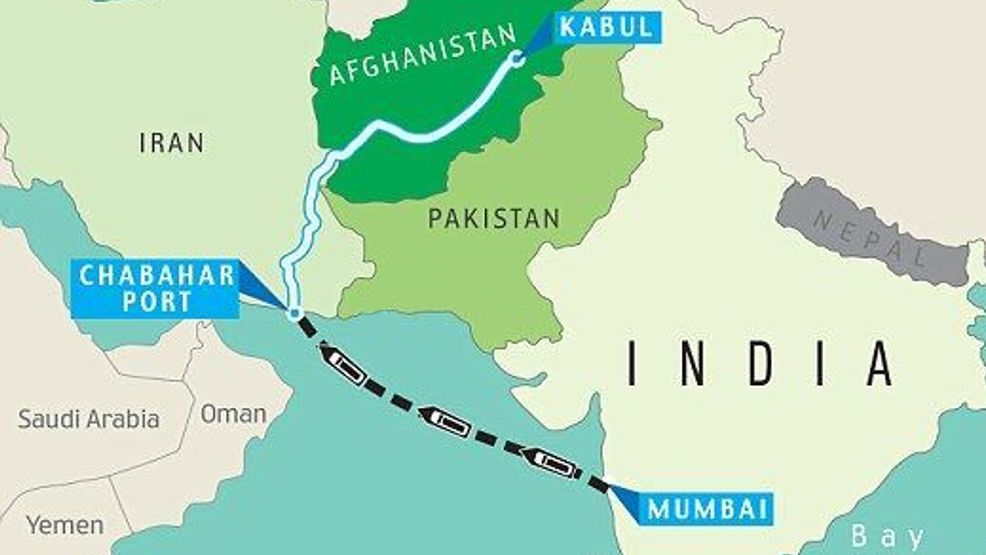Kabul’s Growing Ties with India and Chabahar Signals Shift in Regional Geopolitics
DIDPress: In an analysis on Kabul’s growing closeness to India and the strategic role of Chabahar Port, The Economic Times argued that the Afghan caretaker government has decided to shift its trade focus toward Iran’s Chabahar Port to reduce dependence on Pakistani ports.

Following deteriorating relations with Pakistan and ongoing tensions between New Delhi and Islamabad, the Taliban caretaker government has turned to India as a partner for global trade.
According to informed sources, the Taliban is actively exploring participation in the International North–South Transport Corridor (INSTC), as part of its strategic move to decrease reliance on Pakistani trade routes.
While cooperation over Chabahar faced challenges after the Taliban’s return to power in 2021, worsening ties with Islamabad — including Pakistan’s mass deportation of Afghan refugees — have pushed Afghanistan interim government toward greater engagement with Iran and India.
Afghanistan’s geographical proximity to Chabahar Port illustrates its intention to diversify foreign relations and reduce its strategic dependence on Pakistan. Chabahar serves as a vital transit corridor linking Iran, India, and Afghanistan. Taliban officials have reportedly traveled to Tehran for talks about Kabul’s potential role in the project.
According to the Valdai Club, a well-known Russian think tank with close ties to the Kremlin, the Taliban’s efforts to expand its involvement in Chabahar are meant to signal a shift toward independence from Pakistan’s influence.
Iran, for its part, is seeking to integrate Afghanistan into the INSTC corridor to strengthen its regional standing. The INSTC was a key topic during a recent phone call between the national security advisors of Iran and India.
In a significant diplomatic development, Indian Foreign Minister S. Jaishankar recently held a phone conversation with Amir Khan Muttaqi, the Taliban’s acting foreign minister — marking the first official interaction between an Indian minister and a Taliban official since 1999, signaling a potential geopolitical shift.
These evolving interactions began with Indian Deputy Foreign Minister Vikram Misri’s meeting with Muttaqi, followed by a visit from an Indian Foreign Ministry delegation to Kabul after the Pahalgam attacks, and culminated in the high-level phone call. This sequence of events reflects emerging regional dynamics in response to Pakistan’s influence in both India and Afghanistan.
The groundwork for these developments was laid after India opened its technical office in Kabul.